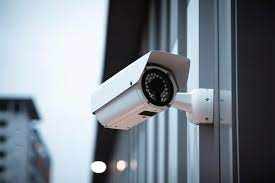Security cameras have become ubiquitous in modern society, security cameras installation serving as silent sentinels in our homes, businesses, and public spaces. These devices have transformed the way we approach security, providing both a deterrent to crime and a means to monitor and record activities. In this article, we delve into the evolution and impact of security cameras, exploring their history, types, benefits, and future trends.
History of Security Cameras
The concept of surveillance dates back centuries, with ancient civilizations using various methods to monitor their surroundings. However, the modern security camera as we know it today began to take shape in the mid-20th century. One of the earliest documented uses of a CCTV (closed-circuit television) system for surveillance purposes was in Germany in 1942, where a system was installed to monitor the launch of V-2 rockets.
The technology continued to evolve, with the introduction of video cassette recorders (VCRs) in the 1970s allowing for the recording of video footage. The 1990s saw the transition to digital video recorders (DVRs), which offered higher quality recording and easier access to footage. Today, advancements in technology have led to the widespread use of IP (Internet Protocol) cameras, which can transmit video over computer networks and the internet.
Types of Security Cameras
Security cameras come in various types, each with its own features and benefits. Some of the most common types include:
- Dome Cameras: These cameras are housed in a dome-shaped enclosure and are often used in indoor settings. They are discreet and can be easily mounted on ceilings.
- Bullet Cameras: Bullet cameras are long and cylindrical, resembling a bullet. They are typically used for outdoor surveillance and are designed to be weatherproof.
- PTZ Cameras: PTZ (pan-tilt-zoom) cameras are equipped with motors that allow them to pan, tilt, and zoom to capture a wider area. They are often used in large spaces that require monitoring.
- Wireless Cameras: Wireless cameras transmit video signals wirelessly, eliminating the need for cables. They are easy to install and can be placed in locations where running cables is difficult.
- IP Cameras: IP cameras digitize and compress video footage before transmitting it over an IP network. They offer high-quality video and can be accessed remotely over the internet.
Benefits of Security Cameras
The presence of security cameras offers several benefits, including:
- Crime Deterrence: The mere presence of security cameras can deter criminal activity, as individuals are less likely to commit crimes when they know they are being watched.
- Evidence Collection: Security cameras can provide valuable evidence in the event of a crime. The footage captured can be used to identify suspects and provide crucial information to law enforcement.
- Remote Monitoring: With the advent of IP cameras, it is now possible to monitor security footage remotely from a computer or smartphone. This allows for real-time monitoring and quick response to security threats.
- Employee Productivity: Security cameras can also be used to monitor employee activities, ensuring that they are productive and following company policies.
Future Trends
The future of security cameras is likely to be shaped by advancements in technology. Some emerging trends in the field include:
- Higher Resolution: Cameras with higher resolution, such as 4K and even 8K, are becoming more common, allowing for clearer and more detailed images.
- Artificial Intelligence: AI-powered cameras can analyze video footage in real-time, detecting suspicious behavior and alerting authorities when necessary.
- Integration with Other Systems: Security cameras are increasingly being integrated with other systems, such as access control and alarm systems, to provide a more comprehensive security solution.
- Cloud Storage: Cloud-based storage solutions are becoming more popular, allowing for easy access to footage from anywhere and eliminating the need for on-site storage devices.
In conclusion, security cameras have come a long way since their inception, playing a crucial role in ensuring safety and security in our increasingly connected world. As technology continues to advance, we can expect security cameras to become even more sophisticated, providing enhanced security solutions for homes, businesses, and public spaces alike.




